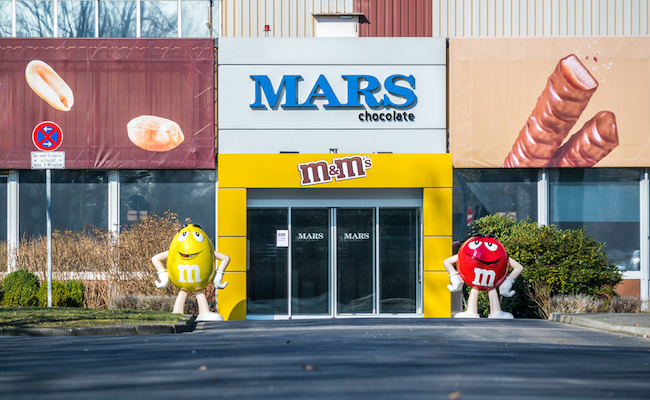Oreos Thins. Mac Juniors. Mini Frappuccinos. The changes have been slow, but noticeable—food manufacturers seem to be moving away from a sales model of MOAR CALORIES and towards a slightly more health-conscious approach.
And with falling profits, it’s in their best interest to do so. “It has everything to do with survival,” Will Rosenzweig, dean and executive director of The Food Business School, told USA Today. “We’ve just reached a point where you can’t ignore that if you’re on the wrong side of this health and climate thing, you’re going to be in a declining business.”
Which means that, sure, a company like McDonald’s might be able to get away with adding a monster-sized Grand Mac to its menu, but customers will be more likely—they hope—to come in for a cheaper, less calorific version of the Big Mac on a regular basis.
“To target growth, you have to be relevant,” Mary Zalla, global president of consumer brands at strategic branding and design firm Landor said. “I don’t think there’s any food company that can ignore the impact and the growing relevance that consumers place on health with regard to food.”
And it’s not just fast food companies trying to stay on the good side of consumer consciousness, either. Earlier this month, Mars announced the launch of their “Global Health and Wellbeing Ambition,” which means that, among other efforts, it will start listing products on its website as either being for “occasional” or “everyday” consumption, “including those to be reformulated over the next five years to reduce sodium, sugar, or fat.”

Mars’ move seems like it could be paradigm-shifting within the industry: according to Rosenzweig, it’s the first example of a company deliberately telling consumers that they should consider cutting back.
“You’ve got the precedent of what happened to the tobacco companies,” Rosenzweig said, “where it showed for so many years they were basically obfuscating their health impacts and then faced tremendous scrutiny and fines.”
Mars, then, appears to be preempting the scrutiny by raising consumer awareness early on. They know what it’s ultimately the consumer who purchases the products—whether or not they take the company’s advice on cutting back is their decision, but at least Mars can say it offered the information.
Interestingly, not every Mars product will be grouped into one of the two categories—their candy bars, for example (think Snickers and Milky Way bars), won’t carry the label of “occasional,” because, according to Mars spokesperson Craig Annis, consumers already know that they shouldn’t be eating them all the time. (And only with utensils.)
The question is, will the new strategy work? Michelle Greenwald, a marketing professor at Columbia Business School, told USA Today, “I don’t think people who don’t eat fast food are now going to come in because they have a smaller size option.”
But that’s just one opinion. Because, we’ve said it before: evolve or die. And right now, companies are choosing to evolve—even if it means losing a little bit of weight in the process.






